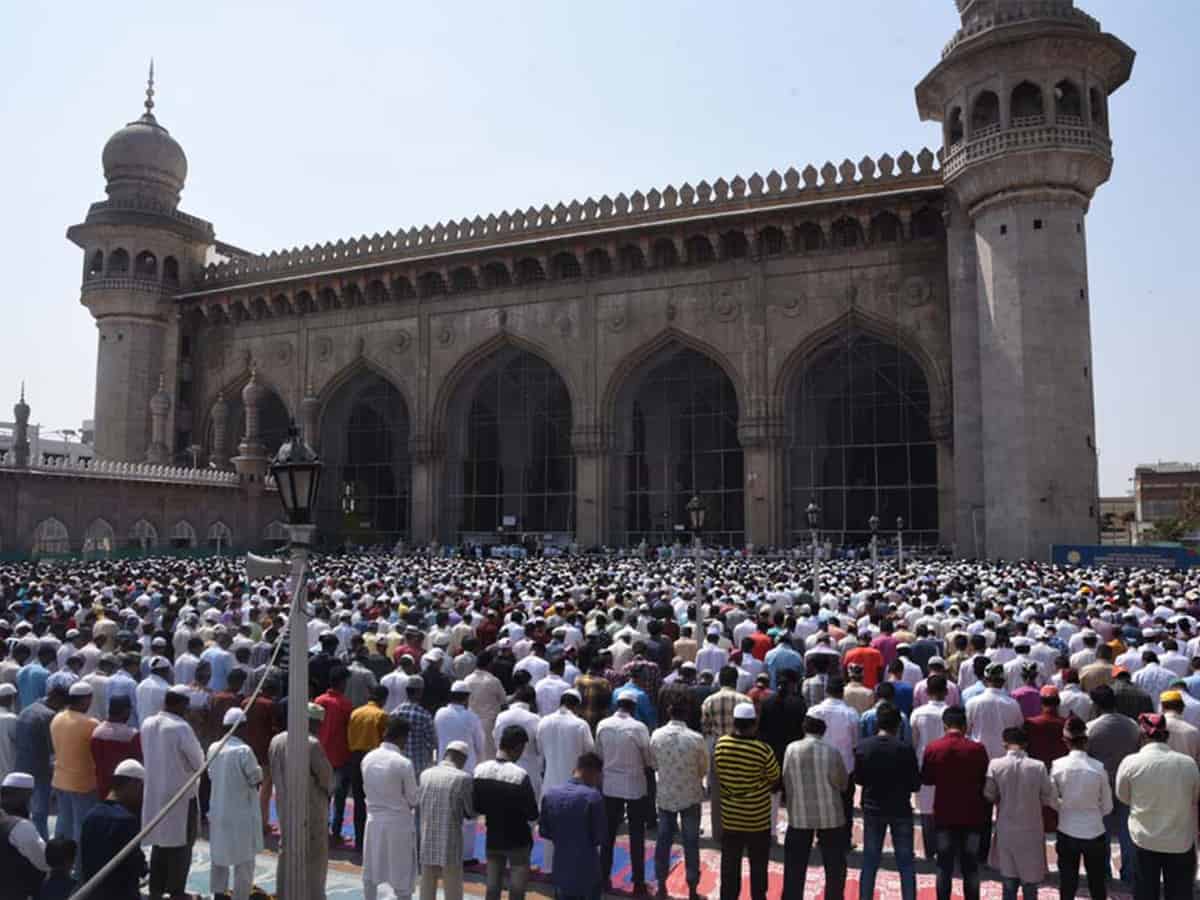Hyderabad: Mufti Khalid Saifullah Rahmani said that despite high significance attached to Friday prayer in Islam, great importance is also given to the preservation of human life. Islam asks Muslims not to become a cause of harm to anyone. According to medical experts, meeting for congregational prayers in masajid could contribute to the spread of Coronavirus.
Keeping Shariah guidelines in mind, Mufti Rahmani advised Muslims to offer Friday prayers at home. However, he said a few people can gather in the masajid and offer Friday prayer with a short sermon so that masajid are not deprived of prayer.
Islamic scholars issue guidelines
Besides Maulana Khalid Saifullah Rahmani, Imarat Shariah Bihar Odisha & Jharkhand, Shariah Council Jamat-e-Islami Hind, Jamiat Ulama-i-Hind and Darul-Uloom Waqf Deoband have also issued similar guidelines.
Muslim doctors issue guidelines
Muslim doctors have also issued guidelines to all Masajid Committees. More than 100 Muslim specialist doctors who have come together to discuss the prevailing medical calamity and assist Muslim clergy and Masjid committees to enable them to make appropriate decisions, have issued the following guidelines:
1) No cure so far, anywhere in the world, research under trial, however prevention is the best solution as on today.
2) A SINGLE exposure to a cough or sneeze from an infected person within SIX FEET distance is enough to make someone CORONA +ve
3) Asymptomatic CORONA +ve can infect many people in the HIGH-RISK group (elderly, children and weak)
4) Recent studies show that it can remain viable in air for 4-6 hours making it an AIR BORNE DISEASE, and on surfaces for around 4 days.
5) Even few minutes of exposure or contact with infected person can transmit the virus, spread is not proportional to duration of exposure.
6) People can be carriers of viruses without any symptoms, for 14 days, therefore isolation or quarantine is for 14 days.
7) The less gathering or lesser the contacts, the better. (1 infected person coming in contact to 3 persons in 5 days, can affect 406 in 30 days; whereas contacting only 1 in 5 days will affect 50 in 30 days; so, decreasing the contact by one third will decrease the spread by 85%)
8) Mingling of old and young to be curtailed, as it may pose greater risk for old, in whom the spread can be fast and strong. (such a situation is common in masajid)
9) Repeated hand washing with soap and water.
10) Musafaha (hand shaking), muanaqah (embracing), blowing of nose in wuzu khana can increase transmission rate.
11) Social distancing of at least 1 metre
12) To Keep going out to the least minimum (absolutely avoid public places) (only essential/emergency work); as every stranger who comes in contact leaves a trail and may not be traced, if need to.
13) Cough and sneeze, etc. into a cloth and disinfect it.
14) Cover nose and mouth most of the times, esp. when outside.
15) Avoid touching other persons like hand shake and any items like door knobs, etc.
They recommended that Masajid should suspend regular prayers. A gathering of not more that 3 to 5 members only should be allowed in masajid premises. They also recommended that congregation or any religious gathering must be absolutely avoided.
Even with minimum functioning of masajid as mentioned above, certain standard measures must be followed.
- Do not shake hands or talk with anybody unless necessary.
- Keep the masjid floor bare, as individuals are supposed to get their own cloth; and mop it daily with anti-septic liquid like hypochlorite solution and spray sanitizers every 4 hours. Removing carpets is an important step as they can act as reservoirs of infection.
- A hand rub to be kept at the entrance and anybody entering must use it.
- Make wuzu at home and do not share anything including topis, and no item should be touched, in masjid.
- FRIDAY PRAYER: Since the gatherings will jam pack the masajid and close proximities will violate every principle of prevention; it is highly recommended to suspend Friday congregational prayer.

